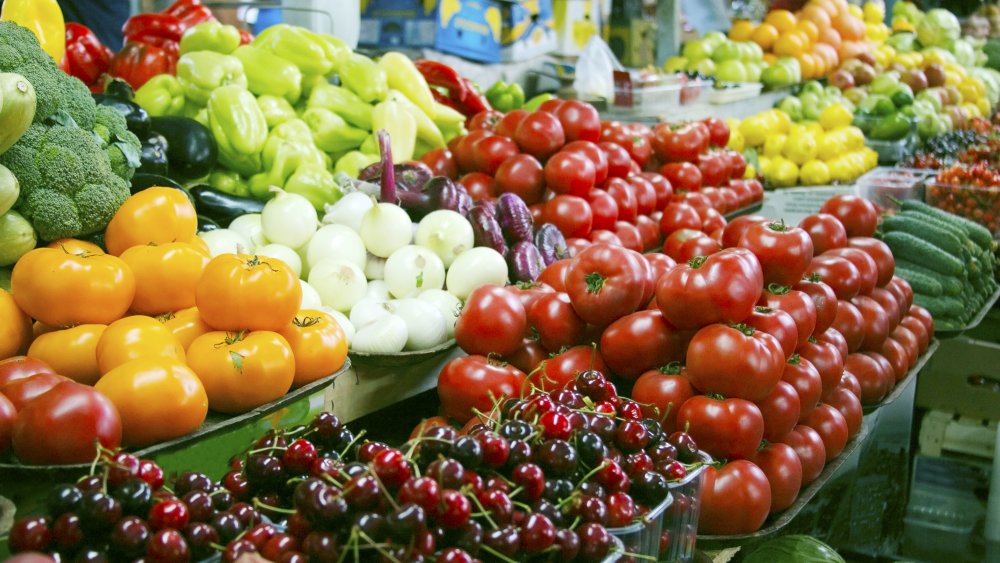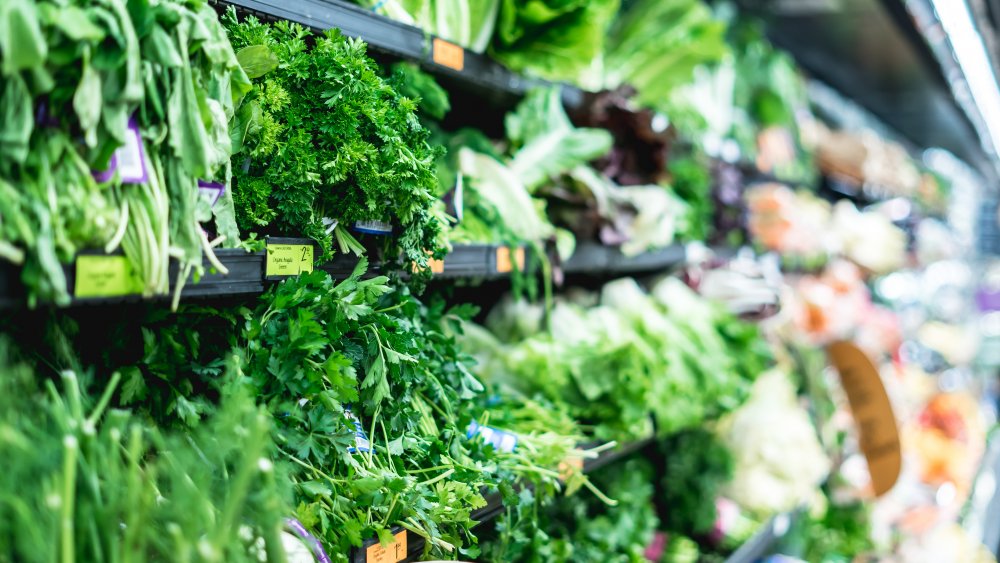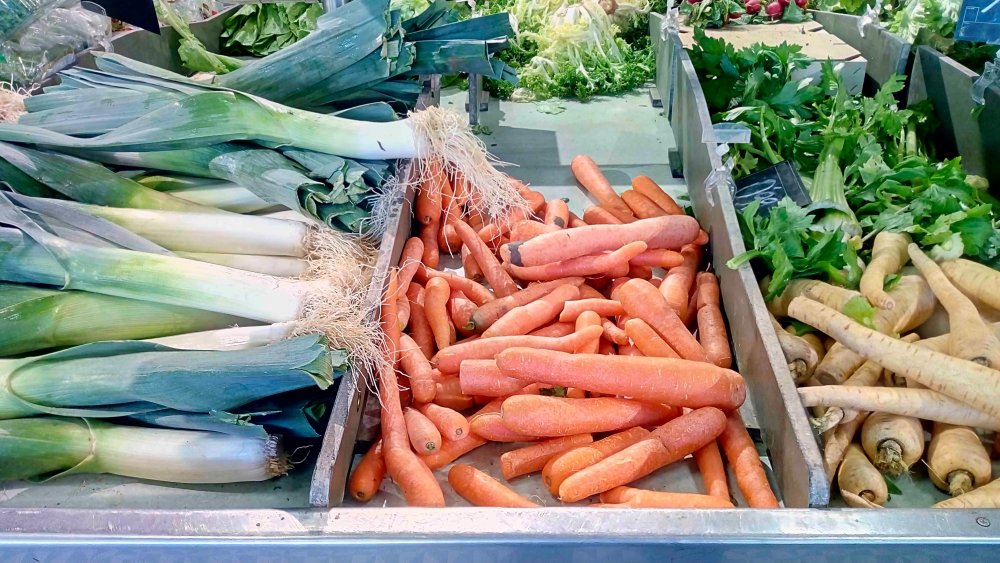The Right Way To Wash Produce During Coronavirus
With everything going on right now with the coronavirus, including self-quarantines, panic shopping (why does everyone need that much toilet paper?), washing your hands a hundred times a day, and trying not to touch your face, it can be easy to forget smaller details, like the specifics of safe food preparation with an active pandemic going on. This is particularly important for fans of salads or raw fruits and vegetables.
The United States Department of Agriculture (USDA) has stated: "We are not aware of any reports at this time of human illnesses that suggest COVID-19 can be transmitted by food or food packaging." However, the USDA follows that up by stating the importance of good hygiene practices when handling and preparing food (via USDA). With all the uncertainty about how COVID-19 is spread, and different information on how long it can survive on surfaces, it is best to be as careful as possible.
While there has been a lot of information about how coronavirus is circulated, much of it is unclear or contradictory. According to Dr. Jennifer Ling, an infectious disease specialist (via Los Angeles Times): "Typically, patients acquire COVID-19 through close contacts with others who transmit droplets that land on another's mouth and/or nose. It is also possible to acquire it if you contact a surface with the live virus, then touch your mouth, nose, or eyes."
Preventing transfer of germs on produce
That last part is the concern many have about their produce. People tend to pick up multiple pieces of produce before choosing the right one, and someone at the store also has to unload the fruits and vegetables in the first place. Felicia Goulet-Miller, who works as an instructor of microbiology at Florida Gulf Coast University, said that if, for example, someone sneezed on the produce, COVID-19 could survive on it for a few hours. As such, if someone were to touch the produce and then their face, they risk becoming infected.
A very important preventative measure even before washing the produce is to try not to touch your face while shopping to prevent the transference of germs. However, it is then important to wash the produce before you use it (via NBC 2).
To do so, rinse all produce thoroughly — even produce you will be peeling or cooking. It gets rid of dirt as well as germs, and when you peel a vegetable or piece of fruit, your hand can transmit any germs on the skin onto the part you're going to eat — so wash your hands before peeling. For vegetables you are going to peel, washing them with a sponge is also an option. Eat or cook the produce immediately after washing (via Los Angeles Times).
Cleaning produce for the immunocompromised
Root vegetables, such as carrots or beets, are less of a concern for coronavirus because they are usually peeled or cooked before consumption. However, the best practice is to thoroughly wash them first, just to be on the safe side.
For anyone who is immunocompromised in some way, a more thorough washing may be required, though. Harold McGee, a food scientist, states that soapy water is more effective to clean produce. However, while washing produce can lower microbial populations a hundredfold, it is impossible to eliminate all microbes. As such, those who are immunocompromised should stay away from raw salads. Other fruits and vegetables are okay so long as they are refrigerated immediately after being chopped.
The bottom line is that you are unlikely to get coronavirus from food, but good hygiene practices, including thoroughly washing your produce, are essential to make sure you don't get it from people handling your food.


